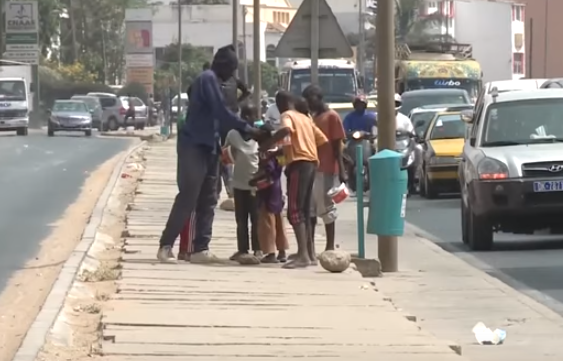
Police in Senegal sweep child beggars off streets
 Earlier this month, the Senegalese government announced a ban on child beggars in the capital city Dakar as a way of protect these children.
Earlier this month, the Senegalese government announced a ban on child beggars in the capital city Dakar as a way of protect these children.
Packs of shoeless boys and girls have been coaxed off the streets where they have spent their childhoods, crying and frightened as they are loaded onto buses in the Senegalese capital Dakar.
They are brought to Guinddi Children’s Centre in the capital accompanied by social workers, where they are interviewed and checked for signs of maltreatment and disease.
“The children are generally unaccompanied. When they come here we ask them for the telephone number of their tutor or Koranic teacher and they give it to us,” explained Maimouna Balde, director of the Guinddi centre.
Nearly 50,000 children have been flocking the streets of Dakar, each day, to beg passers-by for money for their living.
Most of the child-beggars come from Koranic schools, and are often entrusted to religious men who bizarrely send them out to beg on the streets to pay for their upkeep.
Some of the children face various dangers while on the streets, including the risk of road accidents, rape, molestation, abuse and other sorts of rights’ violations.
The ban was fist initiated in 2005, but never came in to law.
The government is promised to launch a campaign to try and stop the practice, ultimately ridding the Dakar streets of the child beggars.
The operation will continue “for as long as there are children on the streets,” Balde said.
With 270 street kids picked up in the first two weeks of July in Dakar, according to the authorities, the initiative is a long way from dealing with the high number of children begging in the streets daily.
This will be the first time for the decade-old law will be firmly applied, with parents or guardians of child beggars potentially facing two to five years in jail and fines of up to about $3 355.






